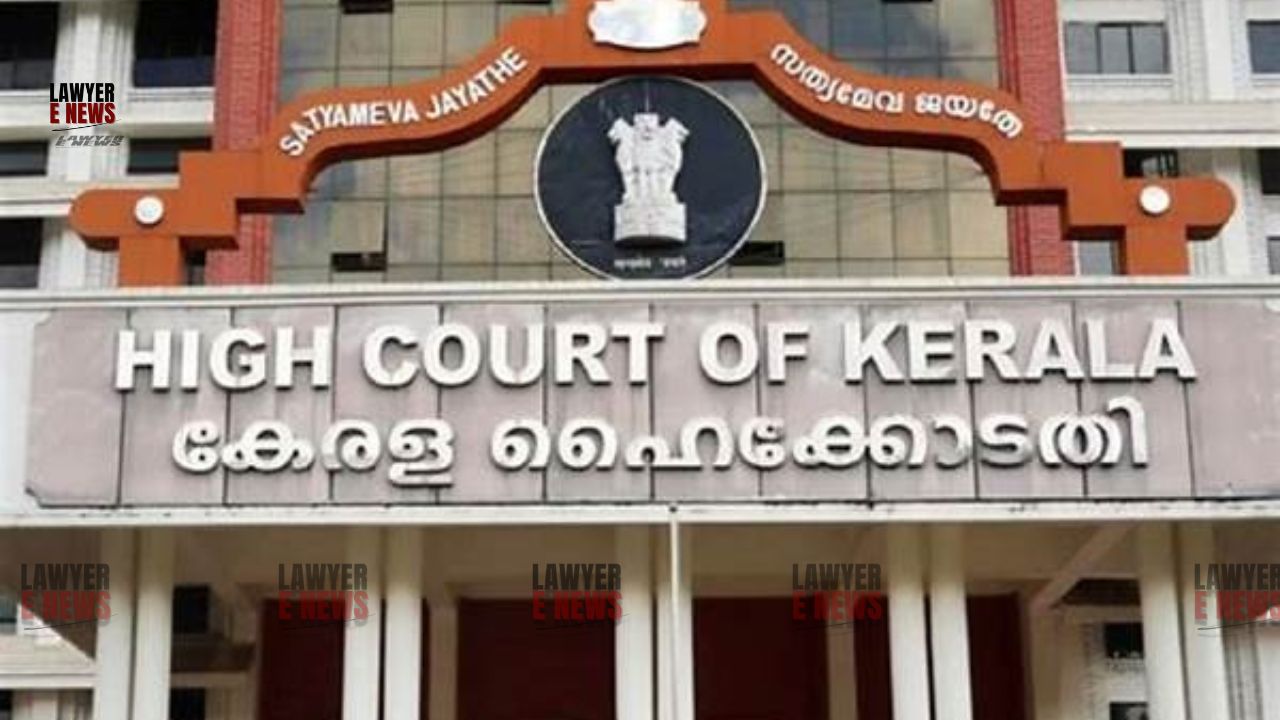-
by Admin
15 February 2026 5:35 AM



Order under KAAPA Quashed Due to Improper Delegation of Authority . The Kerala High Court has quashed a preventive detention order under the Kerala Anti-Social Activities (Prevention) Act, 2007 (KAAPA), citing improper delegation of authority by the District Magistrate. The ruling, delivered by a bench comprising Acting Chief Justice A. Muhamed Mustaque and Justice S. Manu, emphasizes that the period of detention can only be determined by the state government following an advisory board’s review, as mandated by both KAAPA and Article 22(4) of the Constitution.
The petitioner, Sindhu, challenged the detention of her son, Rahul Raj, who was detained under KAAPA by an order issued by the District Magistrate of Thrissur for a period of one year. Rahul Raj had previously been detained for six months and was released in October 2023. He was later implicated in new criminal cases, leading to the second detention order on May 4, 2024. Sindhu’s writ petition argued that there was undue delay in issuing the detention order and that the District Magistrate overstepped by specifying the detention period.
The petitioner argued that the delay between the last prejudicial activity on February 22, 2024, and the issuance of the detention order on May 4, 2024, invalidated the detention. The court, however, accepted the government’s explanation that the delay was due to genuine administrative processes and the need to act swiftly upon the potential release of the detainee on bail. It concluded that there was no culpable delay.
The court’s critical observation centered on the District Magistrate’s competence to fix the detention period. It ruled that the statutory scheme of KAAPA, supported by constitutional mandates, reserves this power solely for the government after receiving the advisory board’s report.
“Determining the period of detention under KAAPA can only be at the stage of exercising the power vested with the Government under Section 10(4) and not at any earlier stages,” the court stated. The judgment reiterated that fixing a detention period in the initial order is contrary to the preventive detention laws and undermines the procedural safeguards intended to protect personal liberty.
The court meticulously analyzed various provisions of KAAPA and relevant constitutional articles. It cited precedents from the Supreme Court that prohibit fixing the detention period in initial orders, emphasizing that this power is to be exercised only after the advisory board’s review. The judgment referenced multiple Supreme Court rulings, including Makhan Singh Tarsikka v. State of Punjab and Pesala Nookaraju v. Government of Andhra Pradesh, to underline that premature determination of the detention period is illegal and prejudicial to the detainee.
“The scheme of the KAAPA and the mandate of clause 4 Article 22 of the Constitution do not permit issuing an order for keeping a person under preventive detention for a period of one year at the initial stage,” the court asserted. It further criticized the Home Department’s instructions that authorized District Magistrates to stipulate the detention period, labeling such delegation as unlawful.
The Kerala High Court’s decision to quash the detention order underscores the judiciary’s role in safeguarding constitutional rights and maintaining procedural integrity in preventive detention cases. By emphasizing the exclusive authority of the government to fix detention periods post-advisory board review, the judgment reinforces legal frameworks designed to protect individual liberties. This landmark ruling is expected to impact future preventive detention cases, ensuring stricter adherence to constitutional and statutory provisions.
Date of Decision: July 5, 2024
